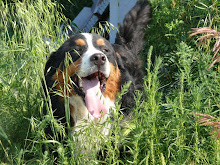Because crowding creates an atmosphere that welcomes disease, animals in factory farms are fed and sprayed with huge amounts of pesticides and antibiotics, which remain in their bodies and are passed on to the people who consume them, creating serious human health hazards.
Eh? pardon me? er, did I read that right? "fed and sprayed with huge amounts of pesticides and antibiotics" Come on now peta, even for you this statement is a bit far fetched.
Pesticides are sprayed on crops, not on animals. Some antiparasitic preparations are used to prevent and control worms and mange but these are carefully controlled and are definitely not used in "huge amounts" A pig is treated maybe (varies from farm to farm and area to area) every 4 months and a cow once a year.
There is no incentive for any farmer to overuse antibiotics. Antibiotics are given to animals when they are sick, just like you would give them to a sick human.
Antibiotics are most effective when used as directed by a veterinarian. Misuse has no benefit to the farmer. If products are found to have residues, they are condemned and so never reach the supermarket shelves, hence they are never eaten by people, and never create any human health hazaard.
Both the World Health Organization and the American Medical Association have supported ending the use of antibiotics in this manner.(1,2) Although McDonald’s has announced that its suppliers will phase out growth-promoting antibiotics, the fast-food chain is not likely to decrease its overall use of antibiotics.(3) The industry simply could not continue to raise billions of animals per year in such extreme conditions without the drugs that allow animals’ bodies to survive conditions that would otherwise kill them.
That last sentence is a load of boloney.
The only way antibiotics promote growth is by keeping the animals healthy. A healthy animal utilizes its feed much better than a sick one, so it grows faster and also doesn't use up valuable resources like time and drugs needed to care for a sick or unthrifty animal.
Sunday, December 21, 2008
Subscribe to:
Post Comments (Atom)

No comments:
Post a Comment